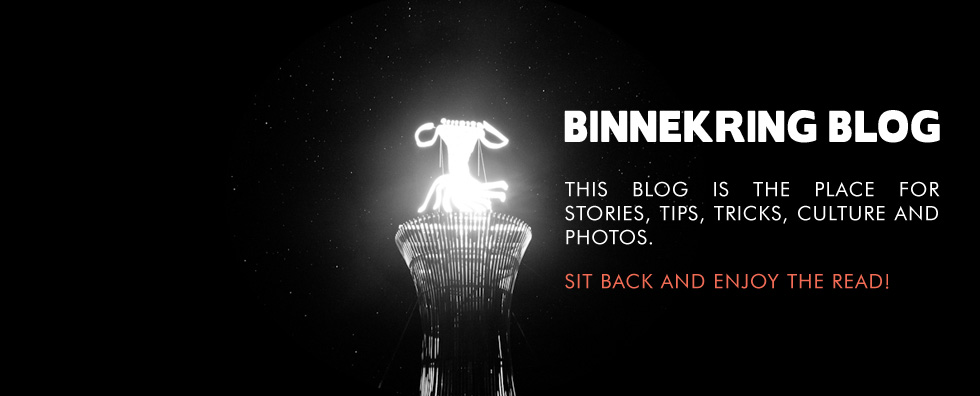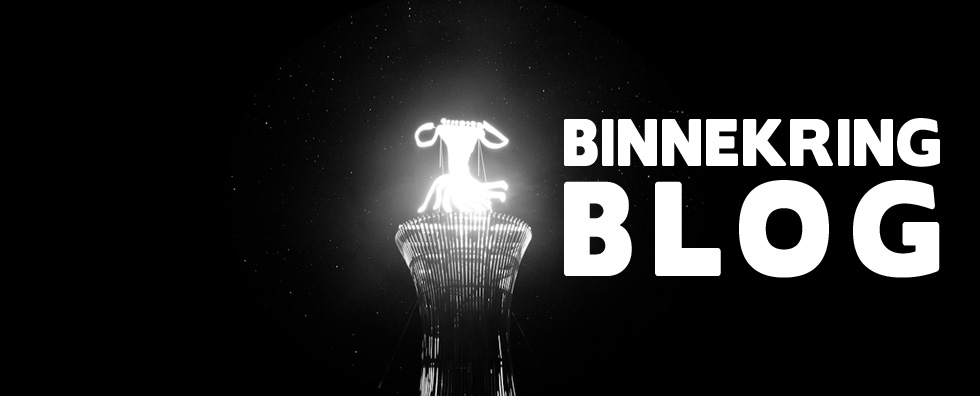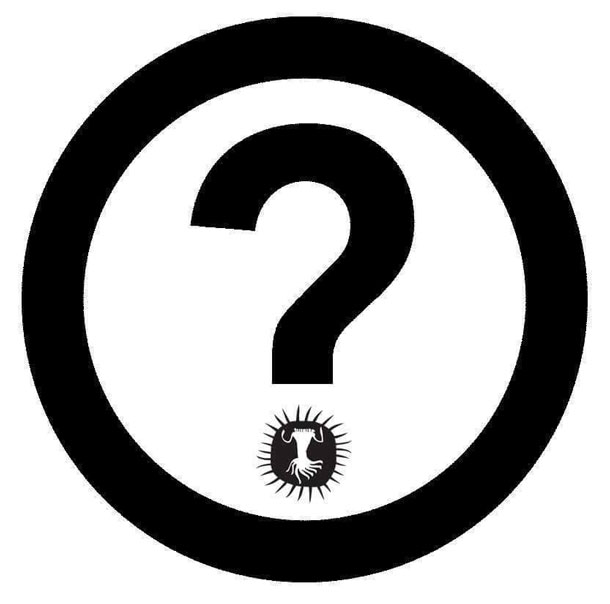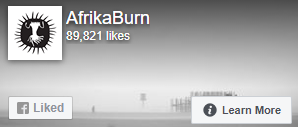BINNEKRING BLOG
Behind Every Cynic Is A Disappointed Idealist
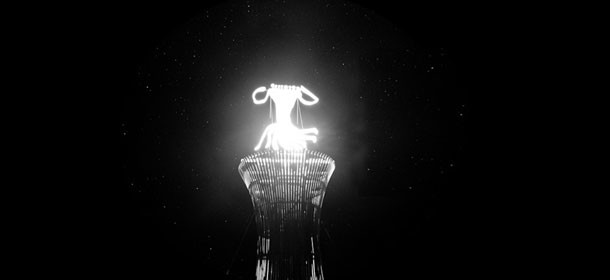
Since Kurt, our workyard manager, posted his roast of AfrikaBurn on February 7th, a lot of people have asked us for our response. As we’re a community-based organisation that has consistently made itself available to answer any questions, we’re responding to the many issues Kurt has raised. Even though he’s stated that he wrote his critique as “a mockumentary”, the issues are real, and though this isn’t a line-by-line response, we’re providing info on the big issues he raises. If there specific items in Kurt’s piece you’d like us to address, please get in touch.
On employment and volunteering:
We have 5 permanent employees, all of whom spent years volunteering before being paid anything. Salaries are not large, and even for those who are paid, AfrikaBurn is a labour of love. Our Directors are paid very modest salaries – and you’re welcome to investigate exactly how much by checking out our audited financials. The term ‘Director’ probably creates the impression that they’re highly paid, but it’s not the case at all: the designation is a label, and doesn’t mean a corner office with a view and an expensive car. Whenever an organisation makes the transition from a purely volunteer-based dynamic to paid positions, there’ll always be some criticism of the way in which it’s handled. The challenge we face is to find the right balance without creating an ‘us vs them’ scenario. Changes and adjustments are all part of the process, so we welcome any suggestions that could aid us in finding the right balance.
On privilege:
For the first several years of AfrikaBurn, all management, staff, members and directors were volunteers, some people were full-time volunteers. Who can afford to volunteer or become a full time volunteer? Only people who have some kind of financial cushion or who are crazy and run themselves into financial ruin – descriptions that both apply to some AfrikaBurn directors. Membership was and is voluntary and by nomination from anyone who has been to AfrikaBurn twice. Directors and some year-round staff are now paid. Many directors and staff emerged from longtime volunteers. So the measure of privilege that made volunteering possible has in some way embedded a measure of privilege. But, as time passes, this is changing – and it’s a change generated by people being interested in AfrikaBurn enough to investigate it fully and get involved. Anything else would be tokenism.
On ‘AfrikaBurn’s just a party’:
Kurt’s absolutely right – many people do treat AfrikaBurn as an excuse to get loose and consume, and let off some very expensive steam. Many people are under the impression that AfrikaBurn is just a rave in the desert, but we’ve worked our asses off to turn that around. It’s tricky – after all, when an event offers people a blank canvas, many will go for the lowest common denominator and use that as an excuse to get wasted and dance all night. After all, as the ever-zen $teven Ra$pa puts it “the gods of wine will always be present at any joyful gathering”. But many thousands of people put their heart and soul into activities and projects that are not about intoxication, and we’re working to make sure people don’t come away thinking that AfrikaBurn’s just a party. In fact, our questionnaire (which precedes Burner Bio registration) was specifically designed to aid us in putting people clearly in the picture. The very first question is “Did you know that AfrikaBurn is not a party or music festival?” That should tell you a lot about where our intentions lie. But it’s a collective effort, and we can’t do it alone – how our community step up and transform others’ impressions is up to each and every individual. You make AfrikaBurn – if you’d like to see it be (or include) something else, now’s your chance.
On race and tokenism:
We live in a country where race is typically an uncomfortable subject, and one that often doesn’t get the honest and open discussion it deserves. But as AfrikaBurn, we’re not typical, so we’re not going to ignore it. If anything, Kurt’s piece has reminded us all that there should be no sacred cows or taboo subjects – especially when it comes to an event that bangs on about inclusion and self expression.
In order to get to our event and make use of the various necessities that are required for a week’s camping, and create art or a theme camp, it’s true that expendable income is needed. There is indeed a financial barrier to attend our events. That’s a fact – but there’s something else to bear in mind: camping in the bush for a week has historically been an activity mostly associated with so-called ‘white’ people – though, as outdoor events have evolved and as South Africa itself has evolved, so this has changed. When AfrikaBurn started, the attraction of an event that was based on an American event (Burning Man) was largely limited to white people. That’s changing, and with it, AfrikaBurn is changing. That’s the way it should be and that’s the way we’d like to see it grow, through the processes we put in place, processes that are informed by our community’s input.
Over the years, our organisation has quietly gone about the business of developing relationships with artists and musicians from disadvantaged communities. We probably screwed up by not making much noise about this, because we’re wary of perceptions of tokenism. We realise now that was a mistake, but as this is an experiment, and it’s important to realise that mistakes are not a bad thing: they’re a crucial part of the learning process. We’re now able to recognise that we’ve been clumsy, and ignorant of sensitive social issues. Admitting that takes some humility, but it’s not enough – we need to act on what we’ve learned. What we need is input – your input – so we welcome anyone who has good ideas to step up and add them to the mix, so we can grow in the right direction. Got solutions? Ideas? Bring them, we want to hear them.
p.s: we’re translating our principles. We’ve got the isiZulu and Afrikaans versions but we’d really like to have versions in as many other South African languages as possible including isiXhosa, Sesotho, Setswana, Sepedi, and Xitsonga. If you’d be interested in helping us with that, please get in touch on [email protected]
On our Outreach program:
From the very beginning in 2007, very real relationships have been forged through quiet and largely un-publicised engagement with members of the Tankwa Karoo community. Where the community – through teachers at the local school, Elandsvlei Primary, and from consultations with leading community members – have identified needs, so our team has sought to respond with appropriate assistance. There’s no strategy to ‘sanitise’ AfrikaBurn’s image – it’s just what we do, because we’re socially conscious. We don’t care for strategy, because we don’t have an agenda other than to do good shit.
The nature of our Outreach initiatives has also changed over time – what started out as consulting the community on their most urgent needs (health care, transport, solar power) has evolved, and though we will continue to offer assistance in areas where it’s needed most, we’re now developing ways to involve the community at our event as artists, by enabling them to create their own projects with our support. We presently have a large-scale artwork in progress that will see the Tankwa community standing equally with all our other artists, as they should be. Other large-scale artworks also have artists from disadvantaged backgrounds on their crews, and this is something that we’ve facilitated through the availability of community tickets that are subsidised by ‘normal’ tickets. This is another aspect that we haven’t made a lot of noise about, but then our Outreach initiatives are not ‘broadly publicised’ because AfrikaBurn doesn’t engage in PR – we simply get on with the job quietly, focusing our energy where it’s needed most: on the actions required to uplift those who need it. There’s no ‘publicity’ – no magazine spreads, and no ‘photo-opportunity gifting’ that would seek to glorify what we do in this area, because we’re not interested in glory – we’re interested in positive change. There’s no budget for PR, and no budget will ever be set aside for this kind of activity. It’s just not how we do things.
On living up to our guiding principles:
AfrikaBurn’s not a party in the desert; it’s not an art festival; it’s not a political movement; and it doesn’t have a specific agenda to push. It is a social experiment in community building. The guiding principles are not dogma or creed. They’re a stated intent about a more meaningful and conscious way of engaging with the world. They’re not instructions or commandments either – they’re an invitation that all who participate are encouraged to embrace.
Often, they’re at odds with one another. Radical Self-Reliance versus Communal Effort. Radical Self-Expression versus Civic Responsibility. That dynamic tension will never be resolved, and why should it be? It’s this flux that creates the impetus for movement, engagement – and conversations.
To conclude:
When Kurt’s piece was published, many of our community members attacked his writing style, and took exception to him making so many pointed comments. It’s true that some of his piece attacks members of our team, but then we’ve come to have quite thick skins – that’s what happens when you make commitments to ideals. It comes with the territory. But at least much good has come of it – there have been hundreds of conversations sparked, in social media and in many social circles. People are talking, and people are also investigating the AfrikaBurn website. This is a great outcome – the more people read and digest the info, the better. If that means that more people will actually attend the many meetings we host to find out how things work and make suggestions themselves, then we’re making real progress.
So again, thank you, Kurt. The issues you’ve raised are not new, but the impetus that the many members of our community have given us by asking so many questions has galvanised us to aim higher and do more. We’re also now aware that many people are not aware of how AfrikaBurn works, or the work that it does. We’ll be using this opportunity – and those that lie ahead – to make sure our information is even easier to access, and our organisation and event are more accessible.
We’ve done some good work, in many areas. In others, we’re behind – and we admit there are areas where we’re ignorant. There are areas where we may be clumsy. But where we are, we admit it. We’re not afraid to recognise our shortcomings and we’re keen to grapple with them, so we’re open to suggestions, and our doors (read: emails, meetings, offices, conversations) are wide open. We invite comment. We extend an invitation – repeatedly, and we mean it – to anyone who can provide ideas and action that can take us forward. Because we believe that this strange little event has the potential to change people for the better. That’s not to say that one event, no matter what principles it’s based on, can bring about instantaneous racial reconciliation. It won’t get No. 1 to pay back the money, and it won’t magically make deeply entrenched social inequalities disappear in a puff of desert smoke. But we have made a commitment, through the principles that underscore what we do, to try and make a difference. If in the pursuit of that there are fuckups, that’s OK – it’s an experiment. One that everyone’s invited to be part of.
So get in touch if there’s anything you’d like to know. Dig into our website and if you still have questions, ask. We’d be happy to share any info with you, and welcome you to our meetings, or if you’d prefer, you’re welcome to come to our offices. We’ll make ourselves available, because we value your input and opinion.
Thanks very much for reading.
Here’s how you can get in touch:
– use our Contact Form to send mails to specific portfolios
– or you can email [email protected] if it’s a general query
– come to the upcoming Town Hall
– send us a message via our main Facebook page’s inbox
– come to our offices at 178 Lower Main Road, Obs, Cape Town
– send snail mail to P.O.Box 191, Observatory, 7935, Cape Town
– leave a post at the bottom of this page

